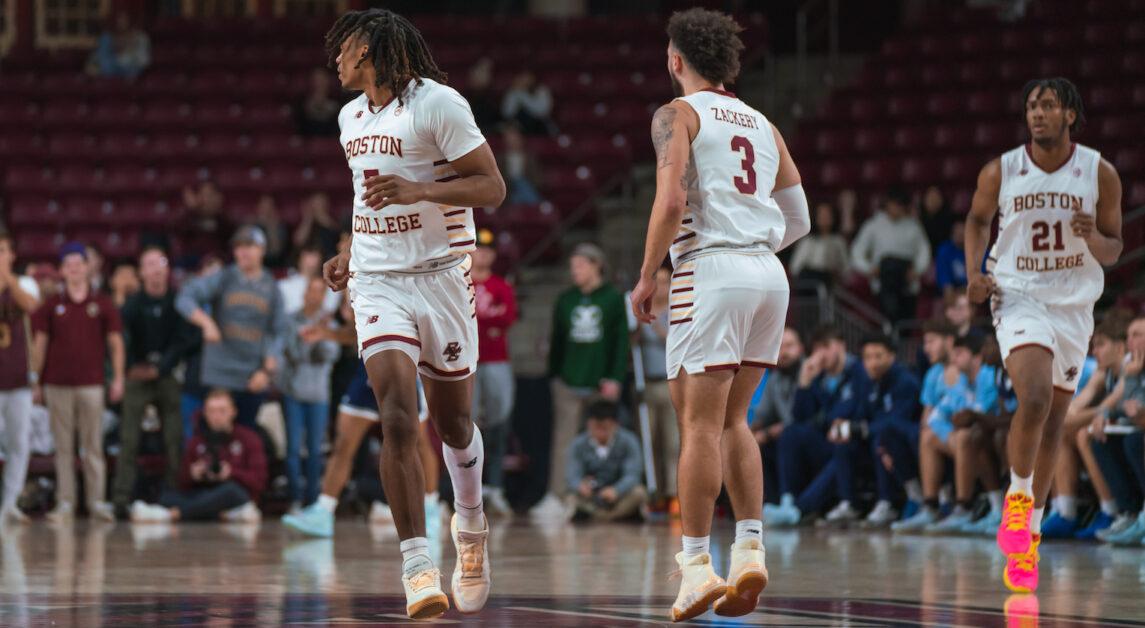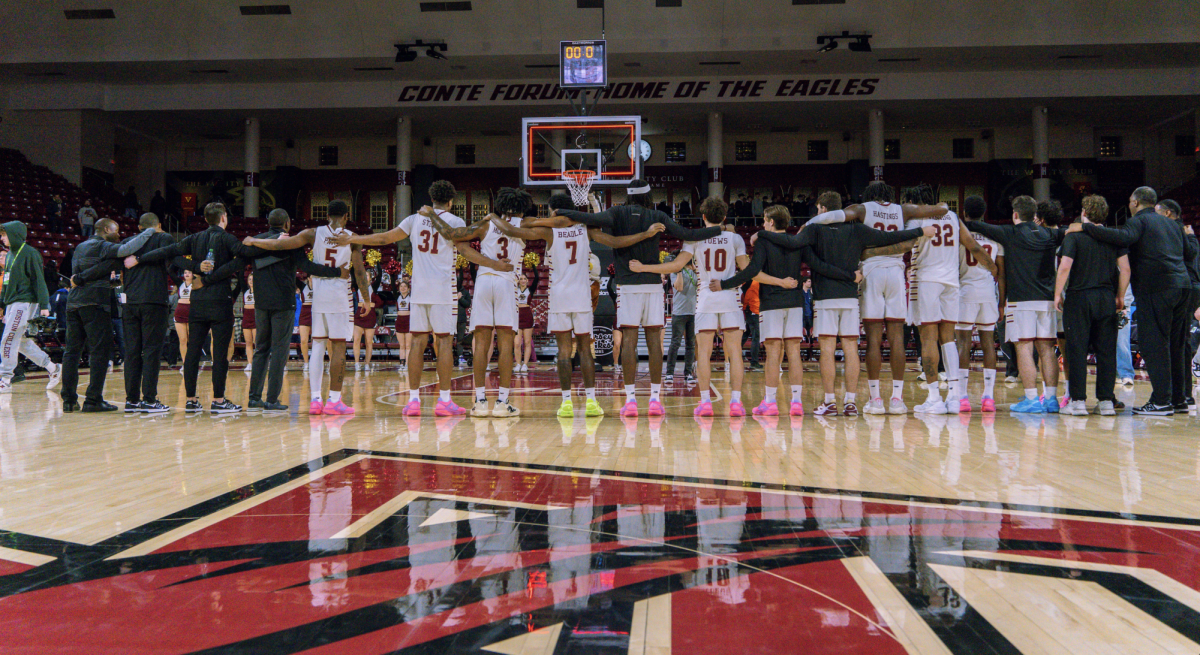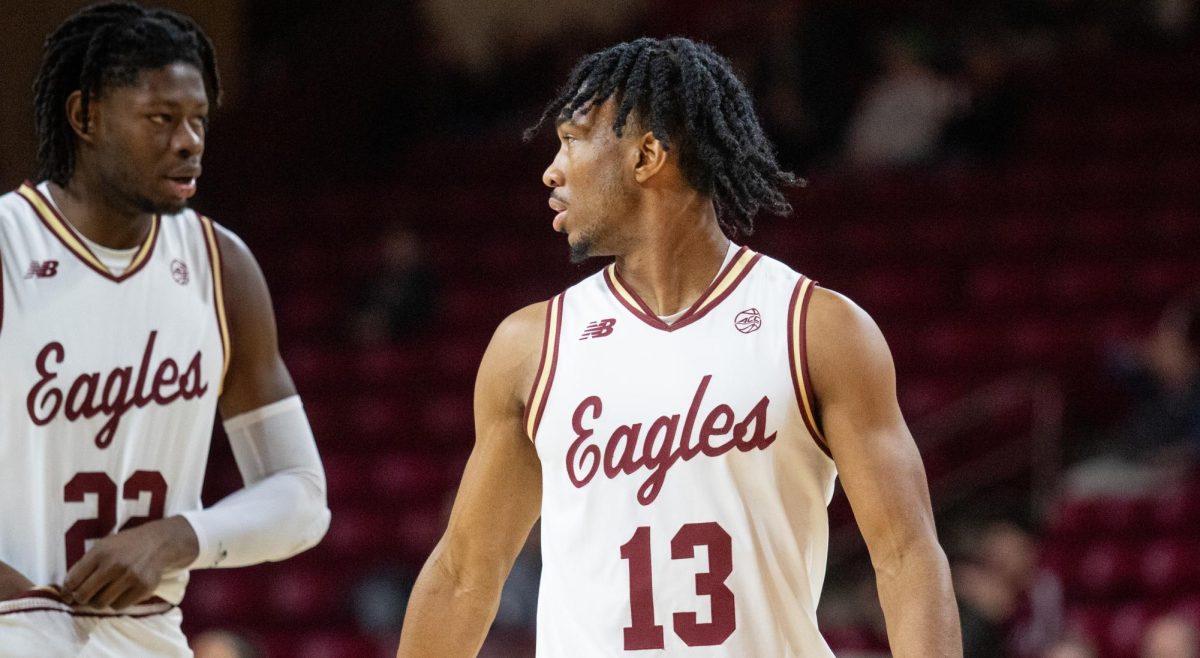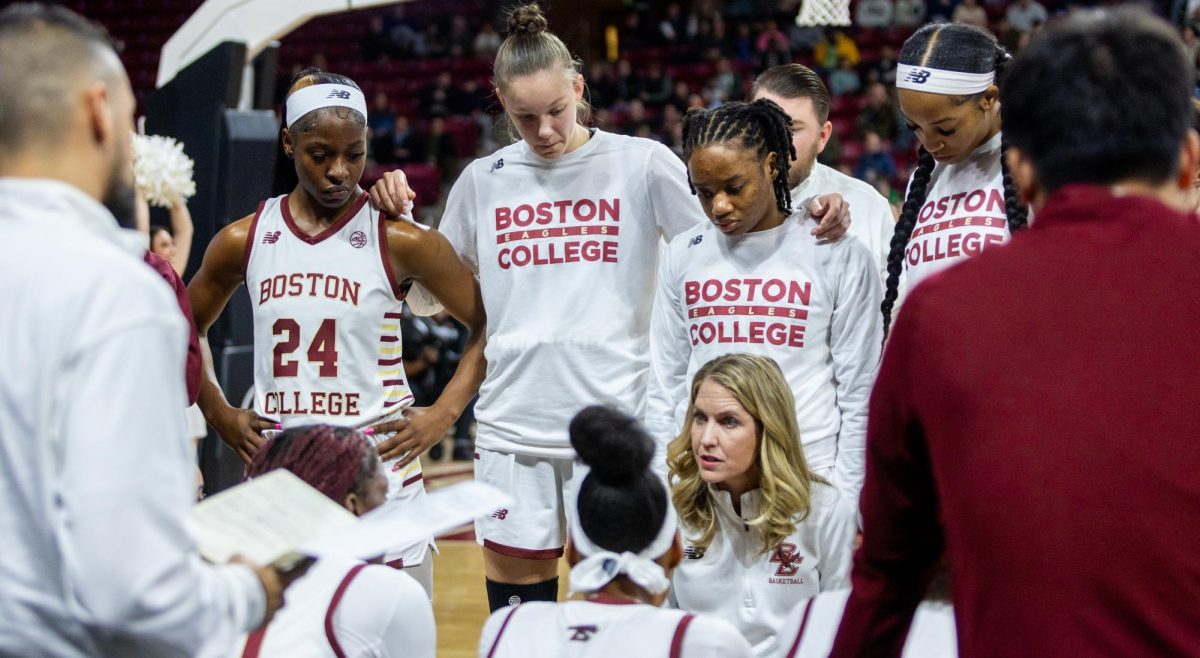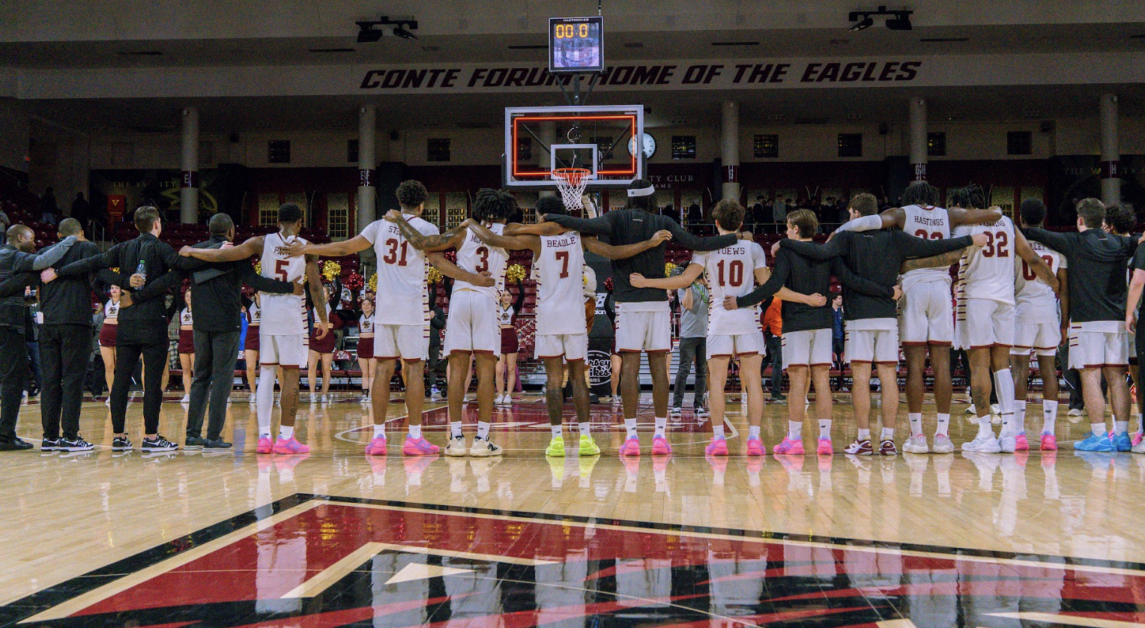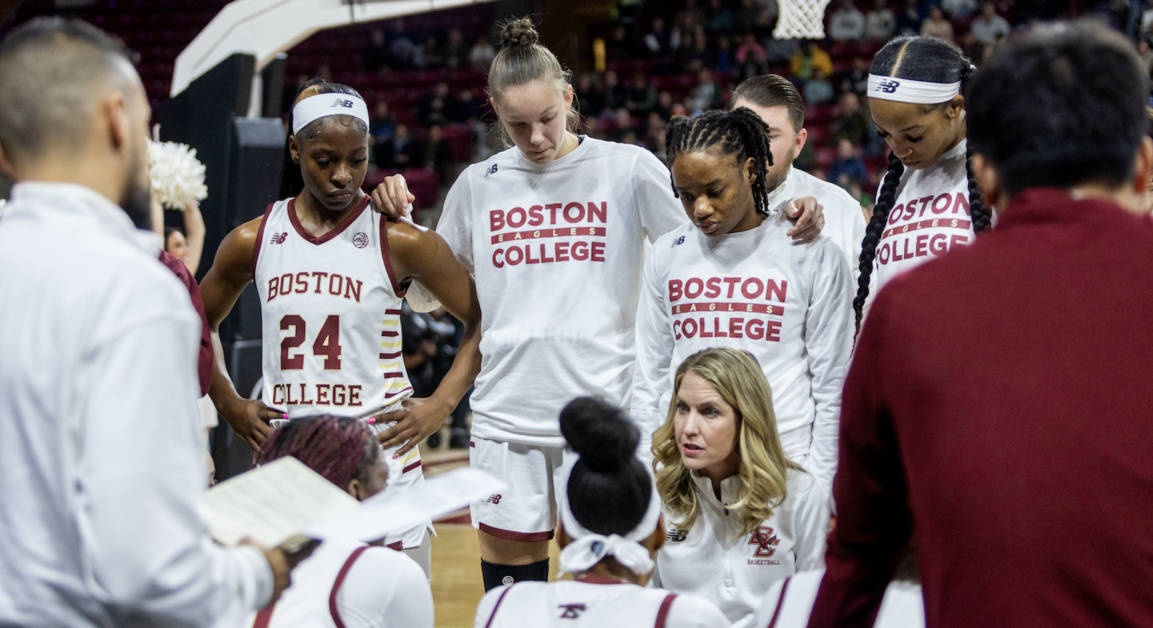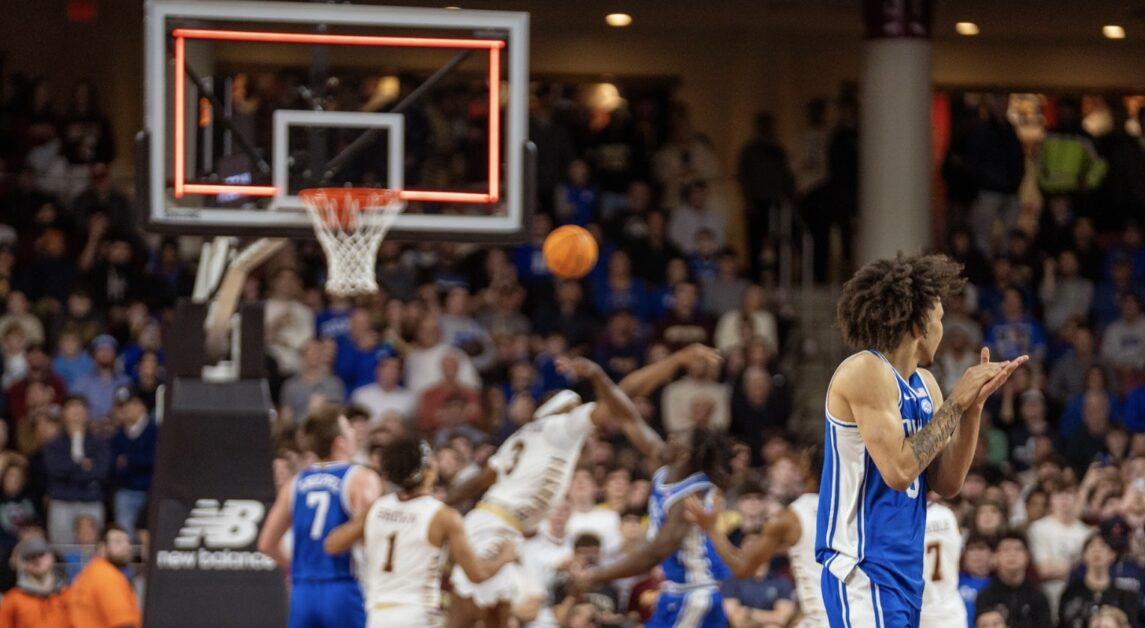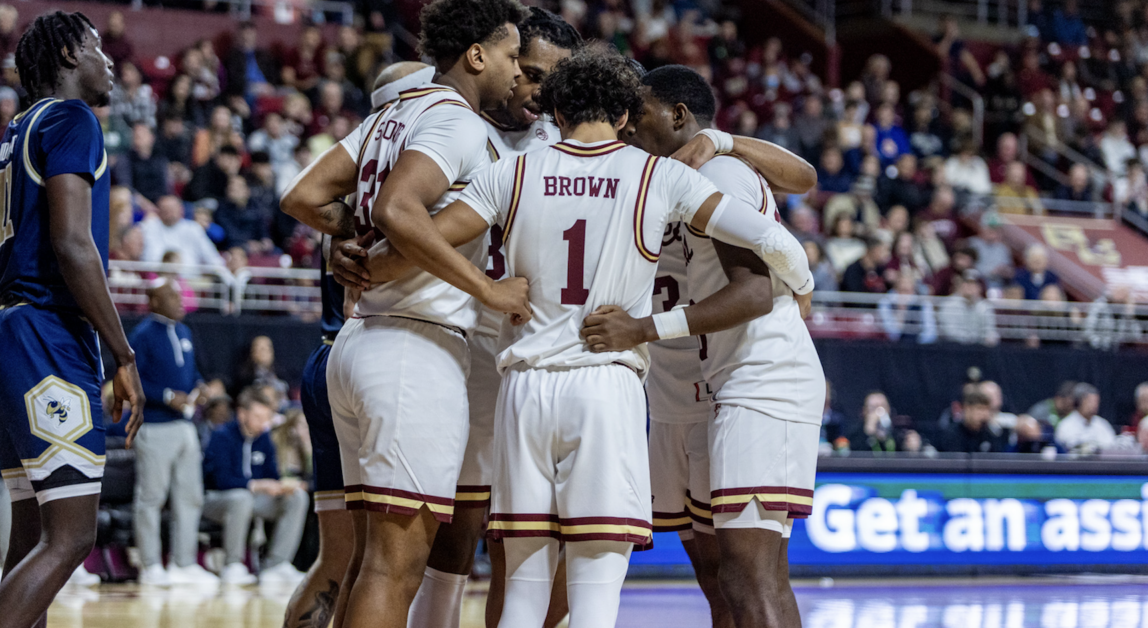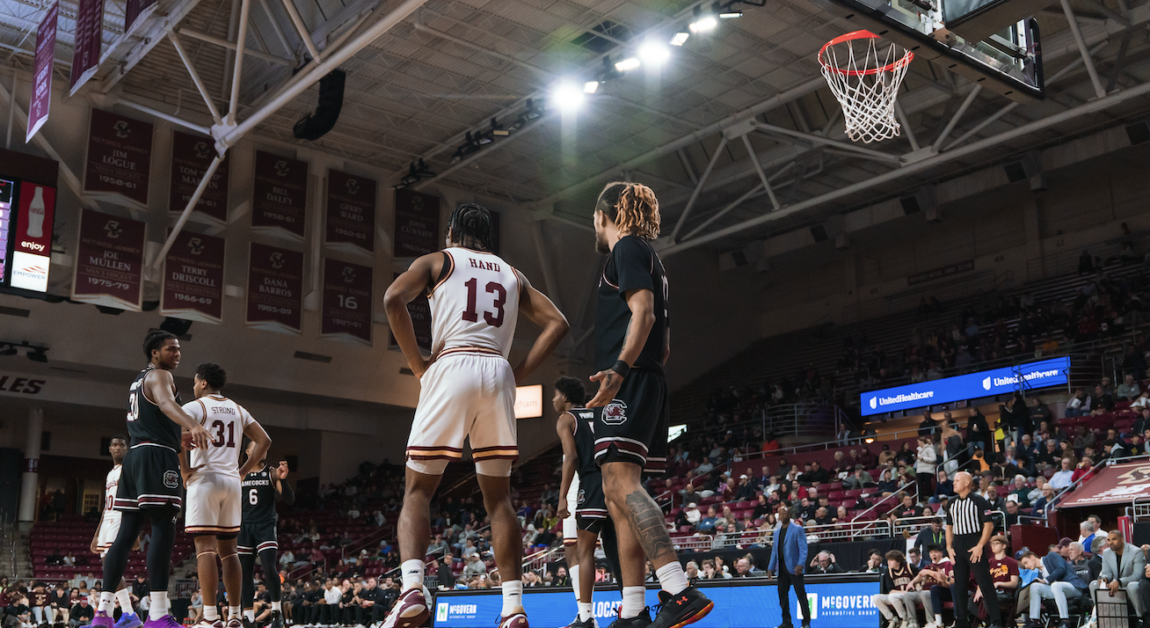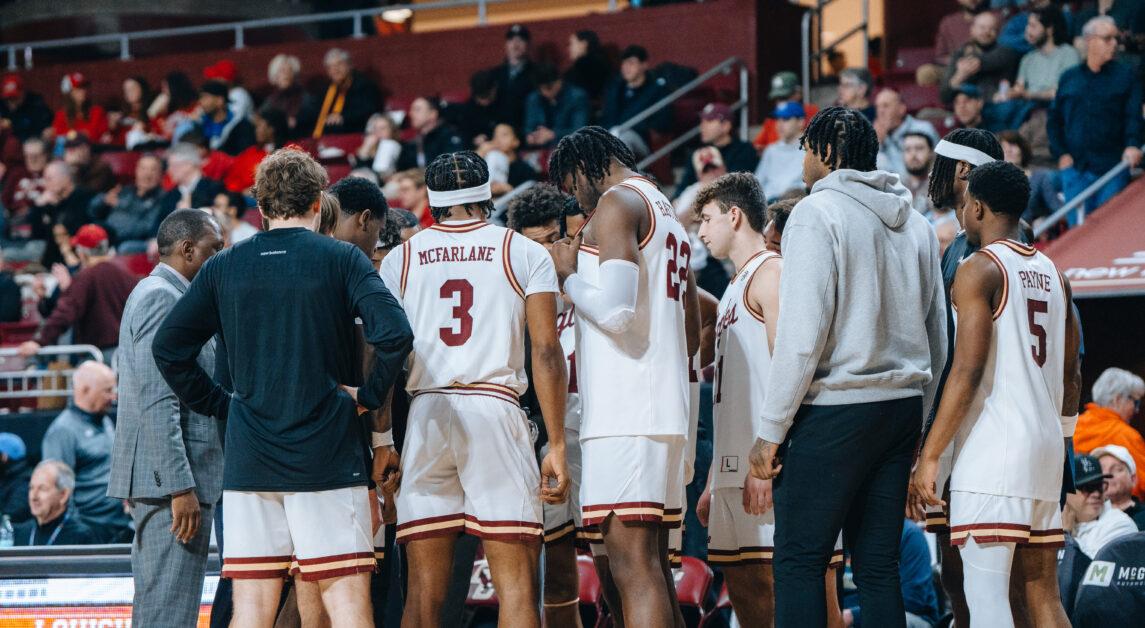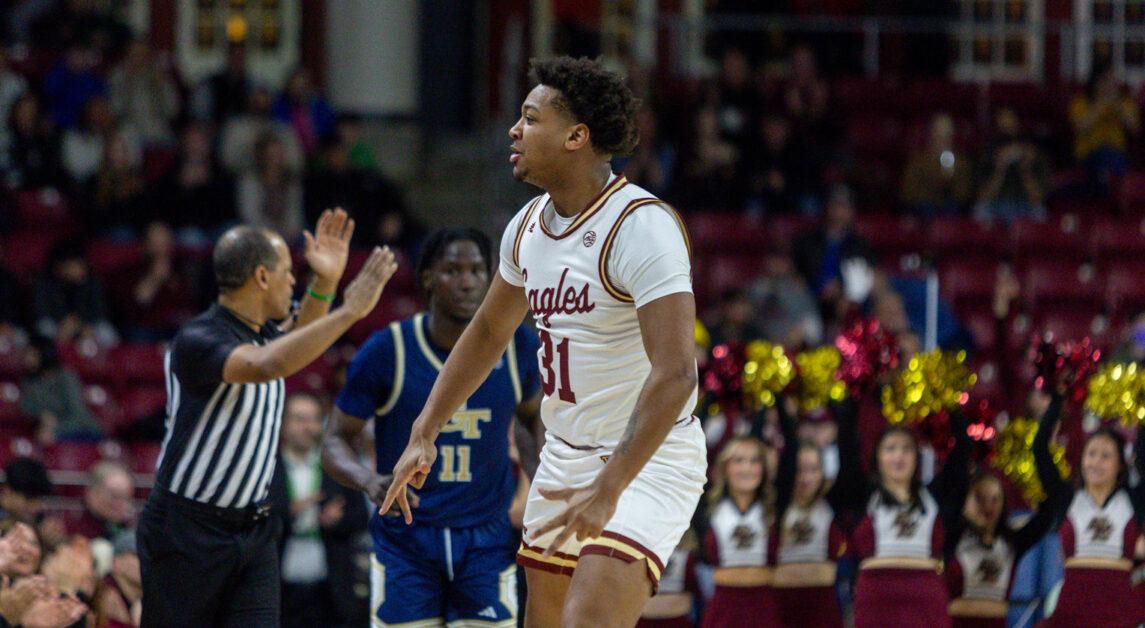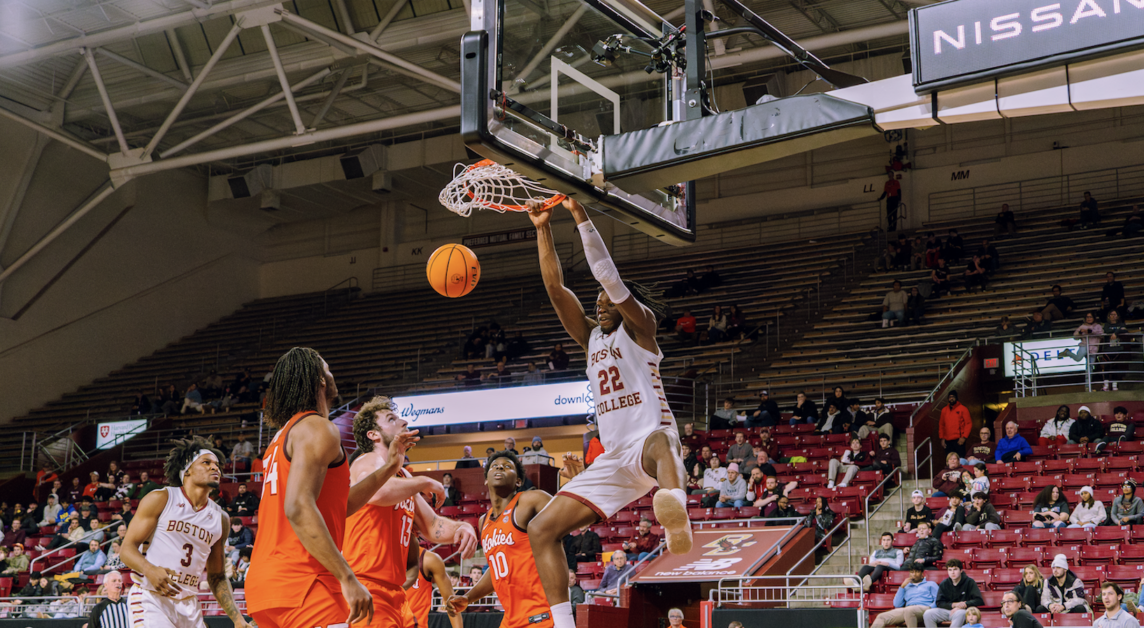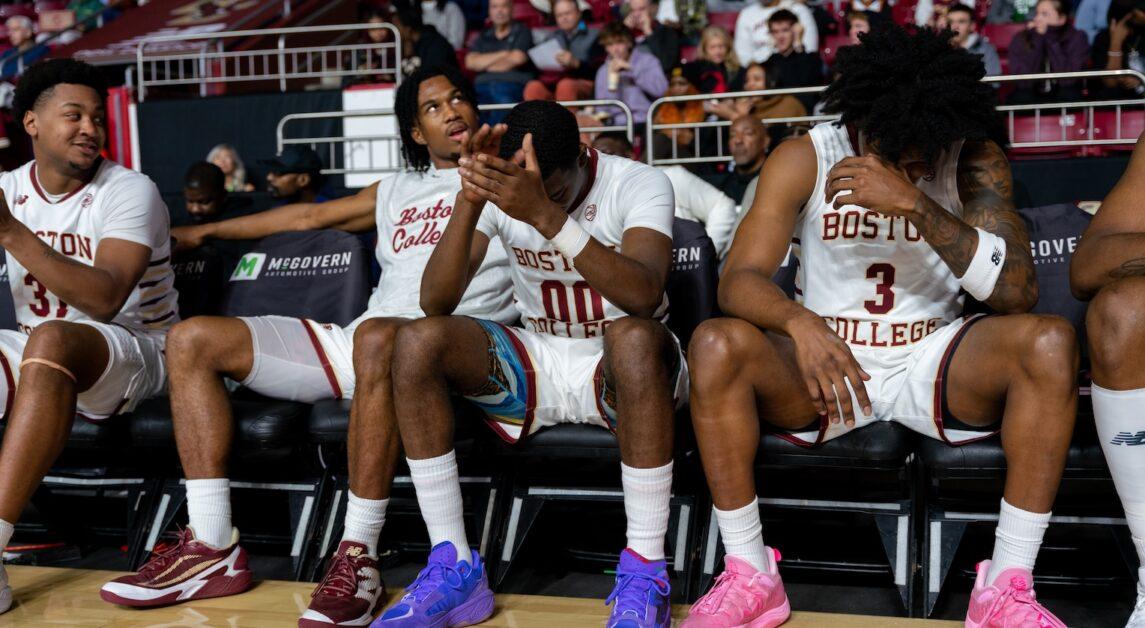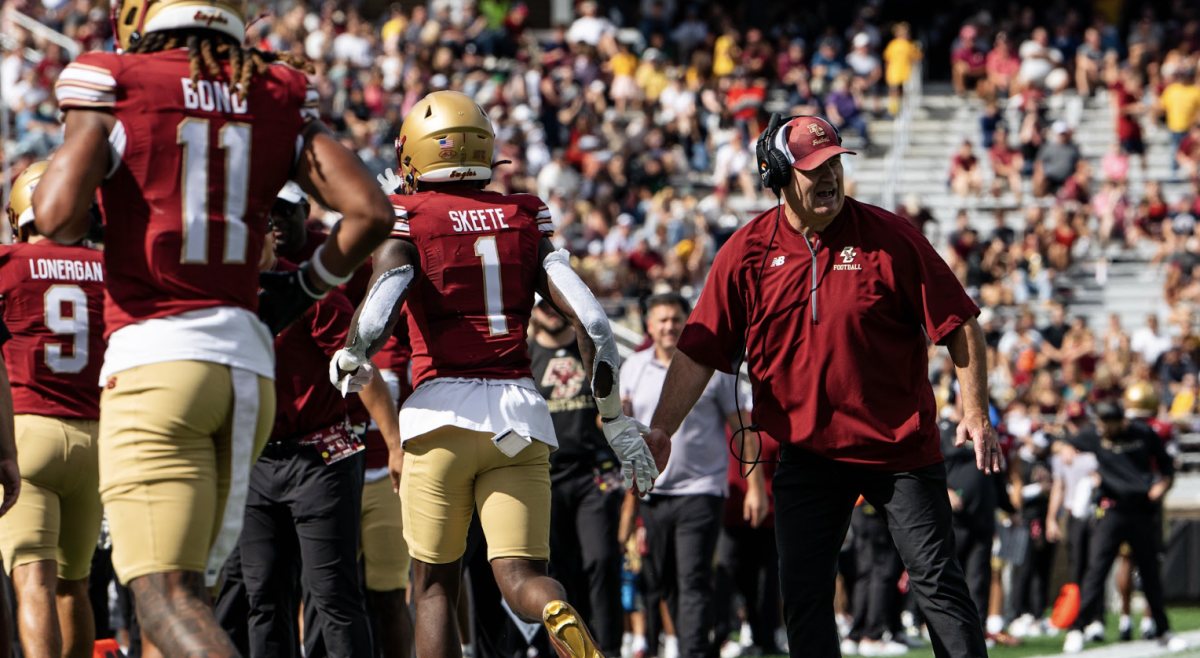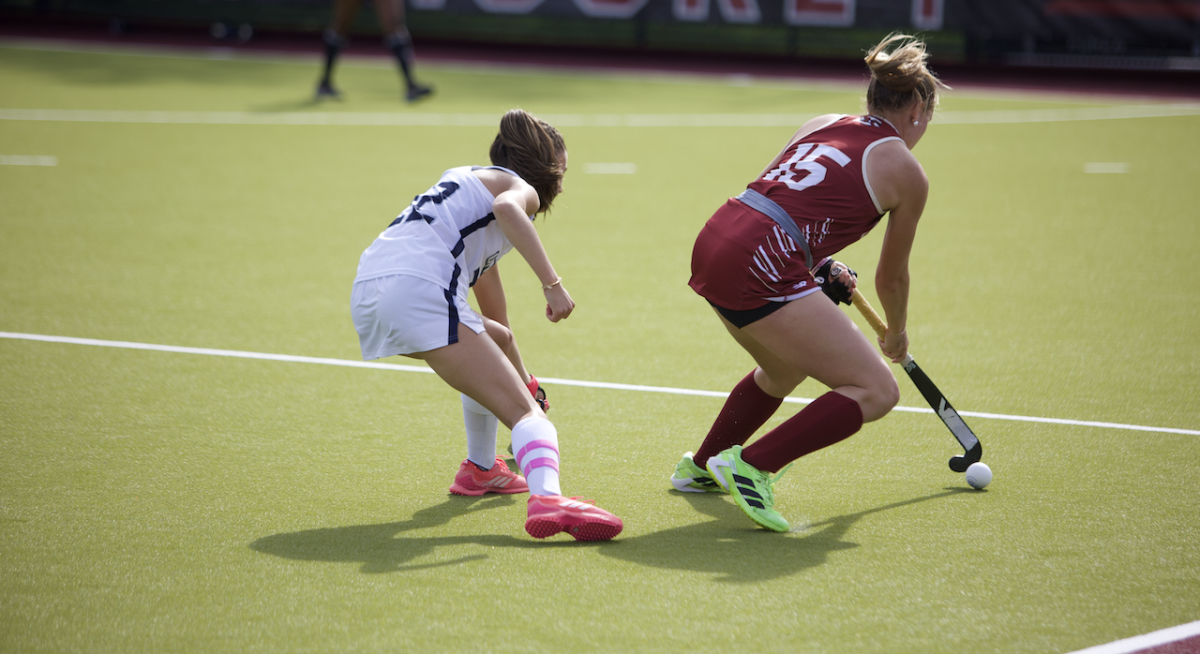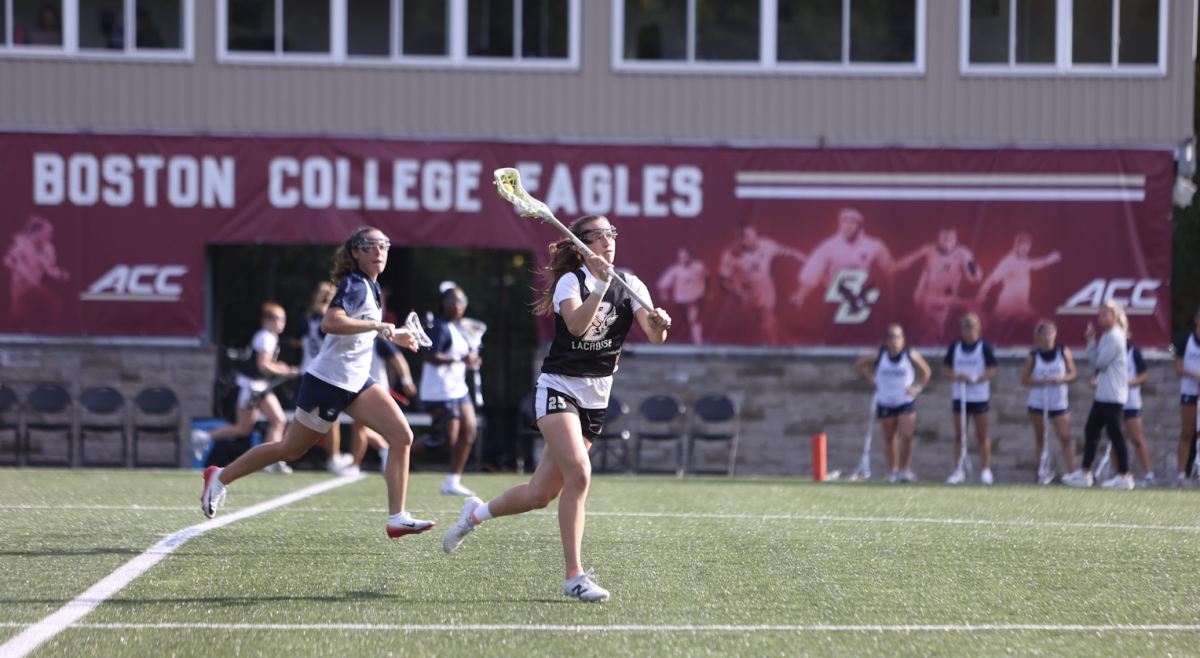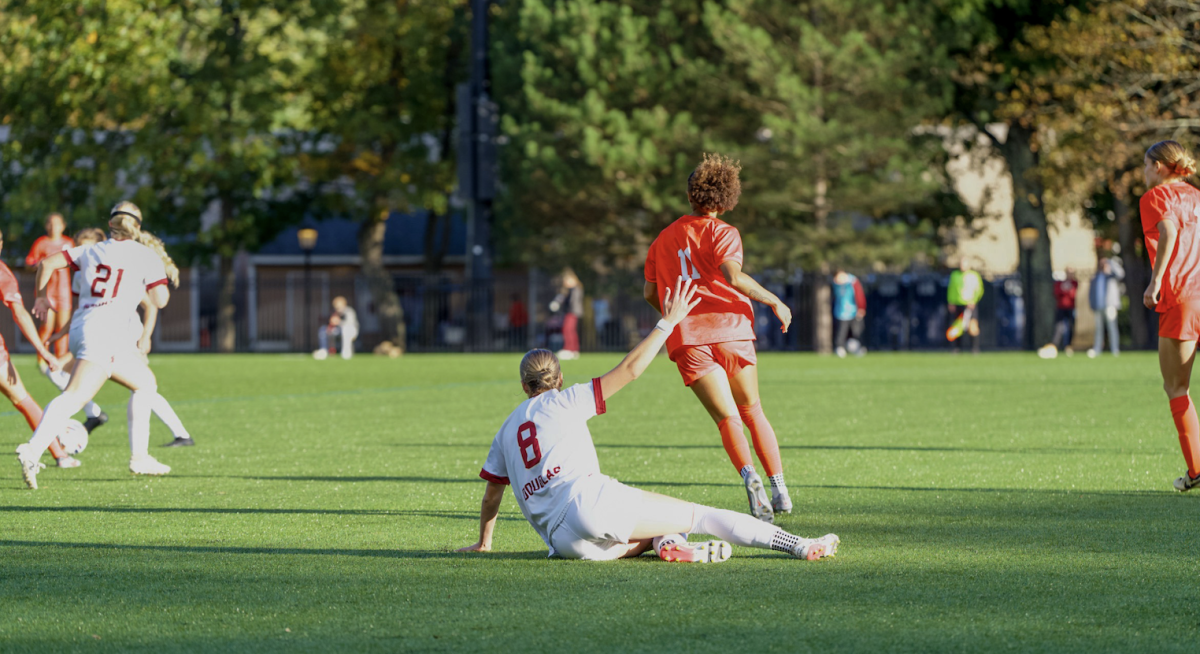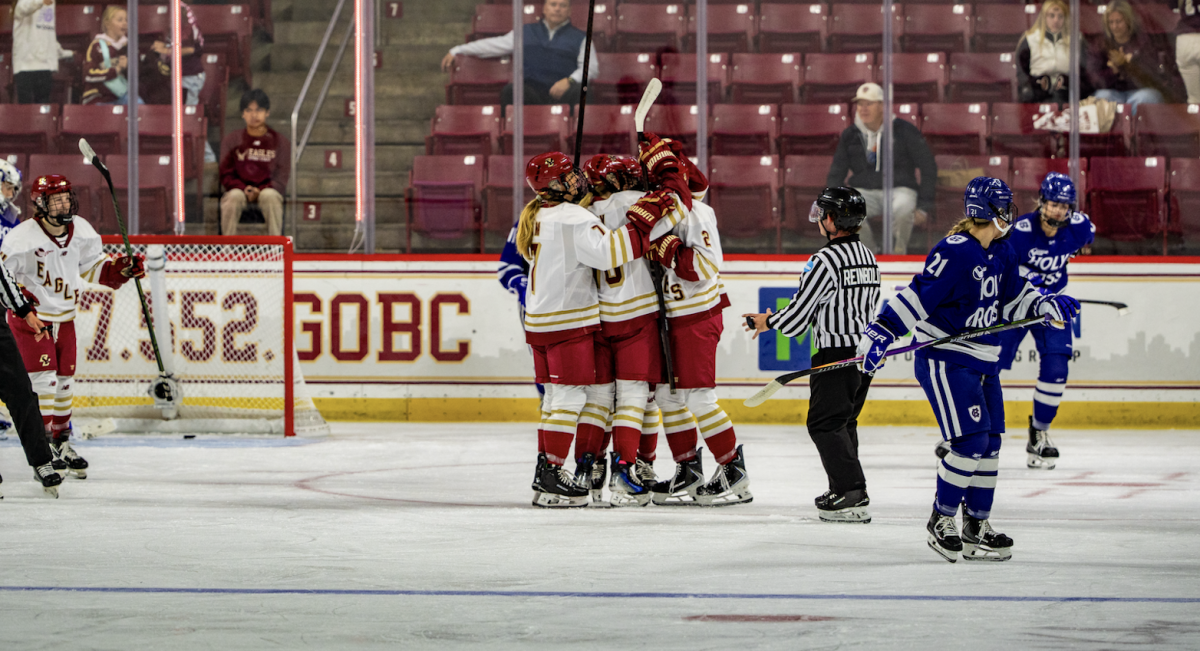Boston College football’s Red Bandanna Game, which honors Welles Crowther, BC ’99, for saving up to a dozen people’s lives during the attacks on Sept. 11, has become an annual tradition on the Heights since its inaugural game on Sept. 14, 2014.
As of Saturday, BC men’s basketball is now a part of that tradition.
The Eagles took part in the program’s first-ever Red Bandanna Game against Villanova in the Never Forget Tribute Classic on Saturday at the Prudential Center in Newark, N.J.
“It’s a big deal,” BC head coach Earl Grant said. “You know, when that happened in 2001, I had just graduated college. I remember the incident. I remember watching it on TV. So now that I’m coaching at Boston College, you know, at a place where somebody has so much heroics as it pertains to Welles, and what he did, and sacrificed his life for so many people.”
While the Eagles (5–5, 0–1 Atlantic Coast) held their own in the first half, troublesome shooting in the second half helped Villanova (5–5) extend its lead to as many as 23 points, sending BC back to Chestnut Hill with a 77–56 loss, the Eagles’ fourth straight defeat.
“Some of it was our shot selection,” Grant said of BC’s second-half struggles. “Some of it was our decision making with the ball. … [Villanova’s] a team of runs.”
Freshman Prince Aligbe notched BC’s first five points, but seven straight Mark Armstrong points put the Wildcats up 7–5 after four minutes of play.
With Makai Ashton-Langford out for the second straight game with a hamstring injury, Jaeden Zackery took on most of the ball-handling duties for BC. A Zackery 3-pointer and subsequent finish at the rim kept Villanova’s lead to six, but Brandon Slater converted a 3-pointer and freshman Cam Whitmore knocked down a jumper to extend Villanova’s lead to 11.
A 7–1 BC run—highlighted by a four-point play from CJ Penha Jr.—cut Villanova’s lead to 24–21, but once again, the Wildcats’ 3-point shooting proved lethal. Armstrong’s 3-pointer put Villanova up by nine with 4:14 left in the first half.
“Keep them out of transition, so they don’t get you on rotations,” Grant said of BC’s game plan against Villanova’s shooters. “That’s their spreadability that they have, they can get you on a 6–0 run quickly, and they do it a lot.”
With just 2.4 seconds left in the first half, Penha nailed a deep 3-pointer that cut Villanova’s lead to 10 going into halftime, scoring BC’s first points in over two minutes. Penha finished the game with nine points and four rebounds.
The Eagles shot 6-of-11, good for 54.5 percent, from behind the arc while Villanova shot 8-of-15, good for 53.3 percent, in a heated first-half, 3-point battle.
But heading into Saturday, BC ranked No. 345 out of 352 Division I teams in 3-point shooting percentage, averaging 4.5 threes per game.
BC’s nine first-half turnovers were the difference maker, resulting in 13 Wildcat points.
Out of halftime, Villanova tallied four straight points, but Mason Madsen—who finished the game with 13 points—netted a 3-pointer just over three minutes into the half that brought the Wildcats’ lead back down to 11. Madsen’s 3-pointer was BC’s last of the night.
With 9:34 left in the game, Madsen assisted an emphatic Devin McGlockton dunk, but less than a minute later, McGlockton fouled out. Armstrong’s third 3-pointer of the night initiated a 9–0 Villanova run, putting the Wildcats up 19 just over the five-minute mark.
Closeouts on 3-pointers were a consistent problem for BC all night, with the Wildcats totaling 13 threes.
“We wanted to make sure that we were in the gaps, we were controlling the ball, staying down on shot fakes, because their whole goal is to reverse the ball to get you in a rotation with a shot fake and a drive,” Grant said. “That’s what they’ve been doing for 10 years, you know, give them credit.”
With the game out of reach, Brendan Hausen knocked down two 3-pointers for a 73–49 Villanova lead, and the Wildcats pulled out the 77–56 victory nearly five minutes later.
Villanova outscored the Eagles 37–26 in the second half, with BC shooting just 33.3 percent from the field and 13.3 percent from behind the arc.
“Obviously, we wish that we could kind of learn from wins a lot of times, and I think sometimes, maybe learn more from losses,” Madsen said. “So obviously, there’s going to be growing pains and I think we’ve kind of felt this throughout, at least, the beginning of the season.”

